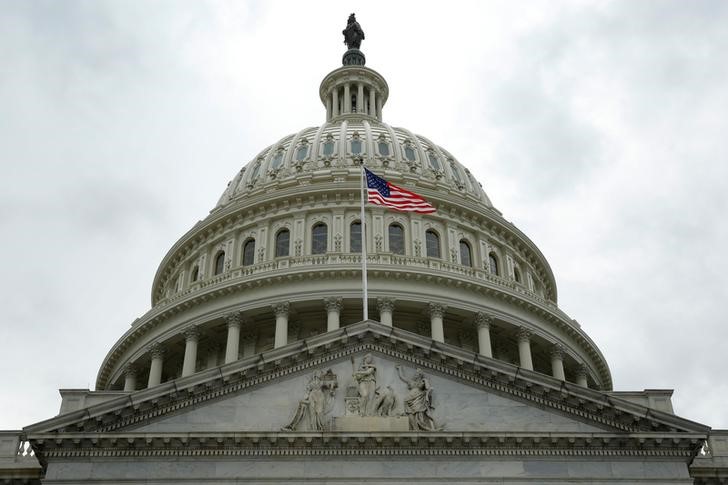Investing.com -- The U.S. House of Representatives is set to consider four conservative-backed spending bills for the upcoming fiscal year on Tuesday, although they are not widely expected to become law and may force a possible government shutdown as early as October 1.
House Speaker Kevin McCarthy, a top Republican leader in Washington, has attempted to appease some members of his party by advancing the pieces of legislation, which include restrictions on abortion access and cuts to expenditures on climate initiatives. In return, McCarthy hopes to secure enough support from far-right GOP lawmakers to pass a stopgap funding bill that would temporarily avert a shutdown that is expected to lead to the suspension of a swathe of government services and leave thousands of government employees without pay.
But hardline Republicans, many of whom were displeased with a prior spending agreement forged by McCarthy and President Joe Biden to avoid a catastrophic debt default earlier this year, have expressed reservations about backing a stopgap measure.
Goldman Sachs analysts wrote in a recent note that a temporary government closure is expected to reduce U.S. growth by about 0.15 percentage points for each week it lasts, or about 0.2 percentage points when considering the impact on the private sector.
“Unlike the debt limit [...] a shutdown would be much more manageable from a macroeconomic perspective,” the analysts at Goldman Sachs said.
“However, compared to the debt limit, the less severe economic effect of a shutdown also makes it more likely that Congress fails to act in time.”
Moody's (NYSE:MCO), a credit rating agency, flagged on Monday that a shutdown would "underscore the weakness" of U.S. institutions and governance compared to other countries with a similar top-notch triple-A rating. The warning came just a month after Fitch downgraded its U.S. rating, citing hurdles to policy making presented by polarization in the American government.
